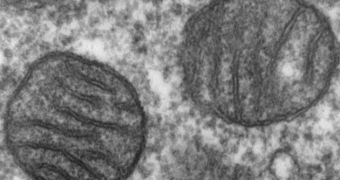Molecular biologists and researchers at the Universitat Autonoma de Barcelona (UAB) Department of Genetics and Microbiology, in Spain, have recently called into question the established belief that the earliest life forms on the planet appeared from self-catalytic molecules. They say that these structures are unable of Darwinian evolution, and propose that a new explanation needs to be sought out for shedding light on the origins of the huge diversity for life on our planet, AlphaGalileo reports.
Established scientific knowledge has it that these molecules were capable of evolving without the need of RNA or DNA and their replication. This is never the case in actual, living beings, which all rely on replication to pass on genetic material to future generations, as well as for renewing their own cells. The Spanish team says that “compound genomes,” these units that require no DNA and RNA, cannot be construed into evolutionary units.
The reason for this is the fact that their properties and abilities change when they reach a critical size, and a greater level of complexity. In these instances, the group argues, the compound genomes lose some of the properties that are essential for further evolution. If life were to depend on these structures, they add, it wouldn't have evolved to the level of complexity it has today, when the human body, for example, features trillions of cells working in harmony, inside highly specialized structures. The new work, which argues this is the case, was conducted using an advanced combination of numerical and analytical simulations, alongside complex network-analysis approximations.
The work implies that experts who agree with “Metabolism First”-type theories on the origins of life should review their work thoroughly. The team concedes that primordial metabolic systems might have indeed provided the suitable environment for early polymers, such as RNA, to form, but contends that a metabolic approach only has severe limitations. The metabolism is defined as a set of chemical reactions that engages in catalysis processes with all members of a closed system, in this case promoting evolution without the need for genetic replication.

 14 DAY TRIAL //
14 DAY TRIAL //